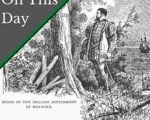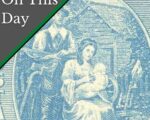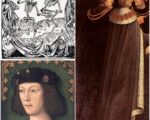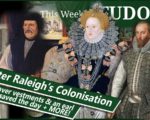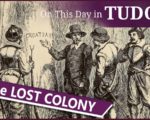
On 25th March 1584, in the reign of Queen Elizabeth I, letters patent were granted to Walter Ralegh giving him “free liberty and licence… to discover, search for, fynde out and view… landes, countries and territories”, for the benefit of himself, “his heyres and assignes forever.”
It went on to describe these territories: “such remote heathen and barbarous lands countries and territories not actually possessed of any Christian Prince and inhabited by Christian people”, and as Nancy Bradley Warren points out in her book “Women of God and Arms”, Elizabeth I and her government were not only granting Ralegh the right to colonise lands owned by the indigenous people, they were also giving him the right to take lands held by Spain, as they didn’t view Catholicism as true Christianity.
[Read More...]
